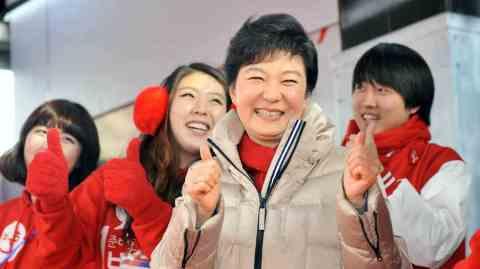
(Photo: AFP)
When I heard the news that Park Geun-hye – daughter of the late Park Chung Hee – won the latest presidential elections in South Korea, the first thought that came to my mind was “yet another Asian women keeping her political dynasty alive?”
Benazir Bhutto. Sonia Gandhi. Aung San Suu Kyi. Yingluck Shinawatra. And now Park Geun-hye. What they all have in common is their familial connections to power. They are all widows, daughters, or sisters who inherited the political mantle from their male family members. While it is remarkable that Asia as a region has had more women heads of states than any other place in the world, Asia (from Japan to India to Thailand) is not light-years ahead in terms of gender equality overall.
When you look at gender gaps in Asia in terms of health, educational attainment, or women’s leadership, men and women are far from being equal . In countries where human development for men and women are almost identical – such as Japan and South Korea – women perform poorly in leadership measurements, including the proportion of women on corporate boards and wage equality. Moreover, despite having the world’s highest number of female heads of state, Asia has very low percentage of women in its parliaments.
This paradox — of having women rise to the highest level of power in patriarchal societies throughout Asia while the general female population is far from achieving equality — is quite troubling. As these female leaders inspire other women in their countries to become empowered like them, how can women outside of elite circles rise to various leadership roles within their companies or communities?
While it’s worthy of celebrating these strong-willed female leaders in Asia, these women also have the duty to address gender gap issues in their countries and strengthen initiatives to help other women in their countries become empowered — whether that means politically, economically or socially.
As we continue to witness more women become heads of states or members of parliament, it’ll be worthwhile to monitor their progress on addressing gender gaps in their respective countries.
Maiko Nakagaki is Program Officer for Global Programs at CIPE.

